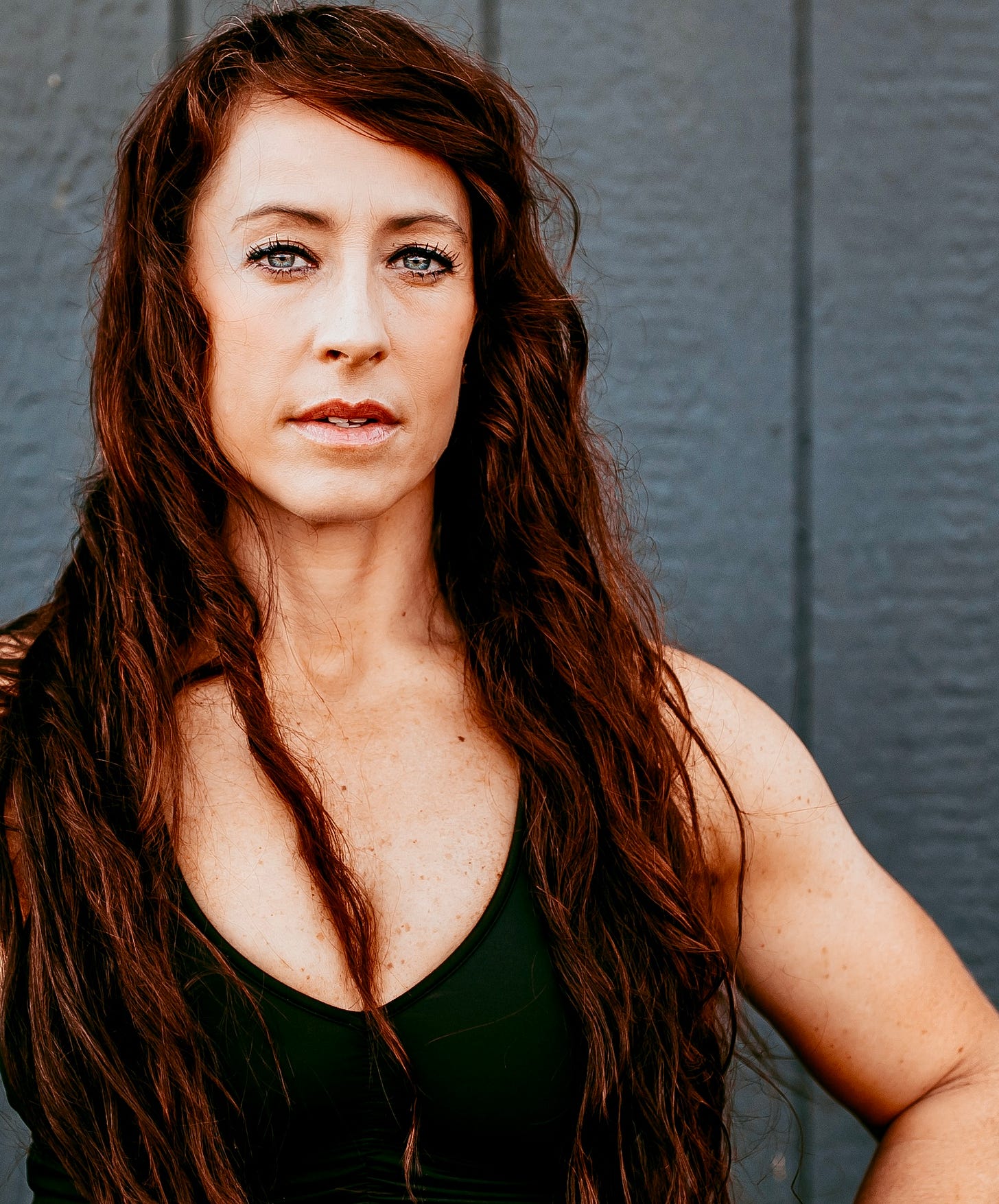TRANSITION Interview #8: Barbara Thompson Operational Psychologist and Veteran Advocate.
A Conversation with Board Certified, Veteran Psychologist Barbara Thompson on Mental Health, Parenting, Veteran Suicide, and Family Dynamics in the Post-Service World.
Thanks for doing this. I just listened to the most recent episode of "In the Name of Service" this morning, which maybe we’ll talk about.
To start, I’m curious to know, being a board certified psychologist, what are your thoughts on this surge of self-help and mental health advice we’re seeing from, for lack of a better term “non-academics”, podcasters and YouTubers? Do you see consequences from that type of thing?
Well (laughter), I think it's possible to be correct and not popular, correct and popular, and then you have popular and not correct, which is probably where we get into trouble.
You don't want to negate someone's personal experience; however, you see a lot of this podcast/YouTube advice and it's hard not to question motives.
Is this really honest advice? Or is this some attempt to grow a following?
That’s right. How long have you been a psychologist? Did you go to school in the Army or how did that come to be?
No. I was in school and applied to the Army's pre-doctoral internship. I wasn't a psychologist at the time, but I ended up joining and going through that program at Ft. Sam Houston in San Antonio.
And that’s something you do, in exchange for a commission, or you joined for your own reasons?
I decided I wanted to join the Army. There’s a lot of ways you can do it, and you certainly can get your school paid for, but I got a PH.D. as civilian, then decided to join the Army.
You have academic work, regular coursework. Then, you have supervised clinical work and rotations. That's the portion I did after joining the Army.
I got it, and then from there, how does one become an operational psychologist?
I met a Colonel who worked with the John F. Kennedy Special Warfare Center and School. They had a post-doc program that was in its early stages. Sort of a pipeline for clinical psychologists to become operational psychologists.
I threw my hat in the ring and ended up getting selected.
And eventually, you ended up at the 724th Air Force Special Tactics Group, where you did a good bit of time. Do I have that right?
That's right. I did a handful of different things beforehand. Deployed, some consulting for various assessment and selection programs, and an operational mission in the intel space.
During my time with 724th, I was a civilian contractor
I see. How was that process? What was your transition process like?
I actually consider myself just recently transitioned. When I left the Army, I kept doing all the same things. My identity was still with the unit, traveling all the time, weekends, nights. Wherever operations would exist, the Operational Psych is involved, you know?
This second "transition" if you will, has been challenging to be honest. My husband and I left the military at the same time. He was a Special Forces officer, so he spent his entire adult life chasing his dream of effecting the battle space and developing men. His sacrifices have been greater than mine and he's a great role model for me. He's got a job, and you know, he's okay about it. He doesn't love it, but it serves a function, and what's interesting, he doesn't allow himself to be overcome by this lost sense of purpose you see a lot. When I ask him directly about it, he’ll describe how much he misses the people and the mission, but he chooses to contribute where he is. I really admire that.
I think a lot about why that is, and I think it comes down to humility.
I felt dissatisfied when we moved here, primarily because I'd gotten so much satisfaction from my work. I put my heart and soul into work at the 724. We had meals delivered to the house, we paid for childcare before and after school; I paid someone to drive my kids to practice, and then we left, now I'm the one doing all that work. I'm cooking the meals and taking them to school, so it's easy to look at that and believe it's less meaningful and be dissatisfied if you're someone that is…. Self-centered. (laugh).
I'm sure it takes a lot of honesty to see it that way.
It did. When I take a long view and humble myself, I know in my heart that what I do now is worthwhile.
It was a hard process. I had to realize that every opportunity and every connection is an opportunity to encourage the values I think are important.
That makes sense. You're still influencing people you care about; it just happens to be your family, vice an operational command, or whatever the case may be. Am I getting that right?
Totally. And that's just my experience. I don't think there's any right way to do it.
When I was supporting a unit, I thought, I want to change the world; I want to make the world a better place; that's what I wanted to do.
I left to follow my husband, so I wasn’t burned out and looking to slow down. But now, I see the cost of going at that pace comes at the expense of the people I want to change the world for, the gifts sitting right in front of me. Does that make sense?
It makes perfect sense. I think that's something we all think about as parents, but you articulate it well.
Probably, the way I will change the world most is through the people right in front of me, whether that is my kids and my husband or the people I connect with along the way.
And how did that show up in your day-to-day life? You're dealing with apathy, feeling bored? That word always feels a bit adolescent to say, but I think it's something, Vet's, that can be a very real problem.
Oh definitely. Feeling bored. I also struggled to feel like I fit in.
I find small talk to be somewhat difficult.
I think now that, when we feel bored, that's a call to action and that's how I try to use it. Create new relationships, or can I pour more into this relationship?
Boredom is the new challenge, I think.
We have to remember, when you're at the highest level for any pursuit, at the tip of the spear or whatever the case may be, you're trying to solve a very specific, immediate problems. As civilians, a lot of what we're trying to do is abstract, taking shape over the long term.
Trying to make sure my son grows up and knows that he was loved as a child. My Mom cared about me, she was there for me. She wanted to be around me, she wasn’t longing for something “more important”.
When I think about it that way, in the big picture, I don't feel bored. There’s so much good work to do.
That's really smart. Again, probably some advice I can take on. Do you ever think about this idea that perhaps there's a level at which too much mental health introspection becomes bad for our mental health?
Oh, I definitely do. I think one of the healthiest things we can do when it comes to mental health is this idea of getting 'to the end of ourselves’.
And that’s like, okay, what does that mean? Or what would the opposite of that be? It’s probably pride.
Put aside that yes, trauma is real, traumatic brain injury is real, but in lieu of those circumstances, whatever we focus our mind on is going to grow.
If you're overly focused on self, that is what's going to grow. We can unwittingly become blind to other possibilities.
I tend to think of it in terms of, when does this pursuit of happiness slip into narcissism?
It certainly can. I think it takes awareness. What are you spending your time and attention on? Those are your priorities, despite what you say your priorities are.
The time and attention that is spent on "why do I feel this way?", isn't futile, but it can become a slippery slope.
I've found if I can interrupt those introspective periods with, "I'm going to invite a friend for coffee, hold my child's hand and focus only on that. It really helps."
Feelings are fleeting, they don't last forever, so the more I can take an action, the more I find an emotion will have changed or is no longer there when I circle back. Sometimes feelings keep me self-focused when I know that contributing to people and projects outside of myself is what really fuels me.
There's some irony here; it seems sort of odd to tell someone, "The problem with your mental health is that you're trying too hard to find the problem with your mental health." I don’t know how well that comes across.
Oh, it's super unpopular.
I think it's important to remember we have emotions and feelings for a reason. There's danger in constantly trying to eliminate negative feelings. What's the end goal? Let’s keep that in our sights and continue to take small, practical steps, allowing the emotions to ebb and flow. And most importantly, don’t keep them to yourself. Talk it out. Incredible clarity can come from just having the courage to have a conversation. Then the more you practice that, the quicker you can find clarity and keep moving forward.
How has the podcast experience been thus far?
I love having conversations, but I'm pretty bad with technology.
I think it keeps me humble and in a learning mindset; you know? I think learning about people really helps you stay curious. As long as you keep having conversations, you're never going to feel like an expert and I really like that.
We live way out in rural Virginia, a place that operational psychologists wouldn't typically live. So, the podcast has helped provide a sense of purpose, and coming from a very purpose-driven world, it's tough not having a specific thing to do every day.
Your most recent episode with Leslie Irby, Evan Jones, and Brandon Wood was very impactful. Is the crisis of Veteran suicide an area you see applying yourself to more in the future?
Yes. It's all around me. I'm not sure if I'm going to have that choice. Too many people I care about are impacted, in what almost feels like a monthly basis.
When it comes to Veteran suicide, do you attribute any one factor more than any other? Be it the physiological impact of TBI, are we lacking resources, stigmatism around a willingness to engage with one another?
Well, from the perspective of people who've talked to me, it seems we're aware that resources exist, but despite that, there's this sort of insistence on self-sufficiency.
If you take just the Para-Rescue Pipeline, throughout, there's plenty of examples in training where you endure hardship until you can't anymore. You will keep pressing even if you've been injured, or you reach shallow water blackout, you go until you can't go any further.
There are not a lot of situations where the expectation is that you ask someone for help.
I don't think that's really a theme in the civilian world. I think asking for help IS an expectation in most non-military settings.
I think that's true; something ingrained culturally, not to ask for assistance?
Yes. I think that's a lot of it.
There are plenty of resources. I think it comes down to an ability to admit that you're qualified to use those resources. That it’s not shameful, it’s wise. It’s not weak, it takes courage.
The TRANSITION and the content within is not medical advice. If you require diagnosis or treatment for a mental or physical issue or illness, please seek it from a licensed professional. If life threatening, call (800)273-8255. 24/7, confidential crisis support for Veterans and their loved ones is availible. Contact the Veterans Crisis Line: Dial 988 then Press 1, or text 838255.
Well, I certainly appreciate the work you do on the topic. I think the more dialogue we have, the less avoidance we'll see. Thank you for doing this, Barbara. In closing, do you have any advice for someone who might be leaving the military this year? Anything you know now that you wish you knew when you left the military.
Maybe that time is what's most important, and not to choose a path out of fear.
Whether we want to admit it or not, leaving the military comes with a lot of fear. And it makes sense.
You join the military, they pay you, you create a family, and when it comes time to get out, the obvious question is "well how am I going to support this life I built?" or "what skills do I have that someone might pay me for?"
And so, making money becomes the problem to solve.
If that's your one north star, and you don't pursue the things that are most important to you, I think that starts to show up a few years down the road.
You have to take stock of what your values are. Unique to everyone else, then have the discipline and courage to pursue the things that are most important to you, and making money might be one of them.
But I think it's really hard to go to bed dissatisfied if you're pursuing whatever is most important to you.
Wise words. Thank you Barbara.
In an effort to have the greatest impact, and help reach more Veterans, I encourage you to subscribe and help by sharing these stories on your own social media.




